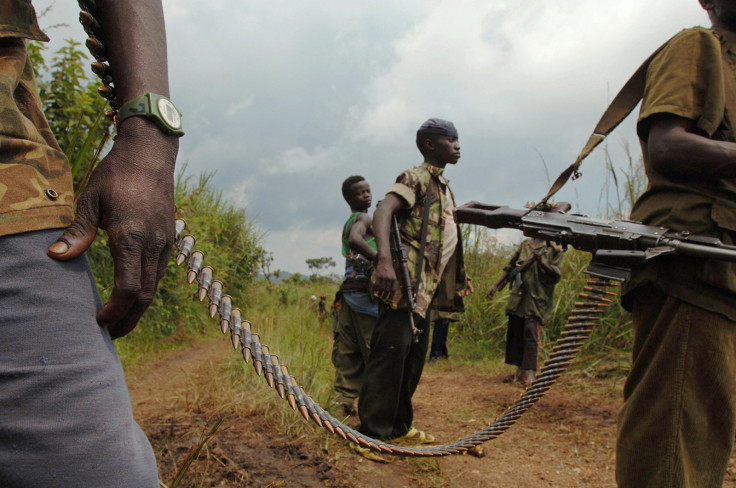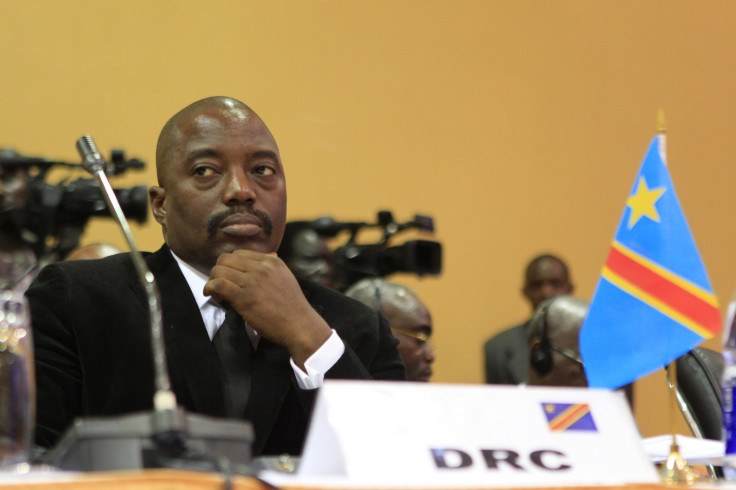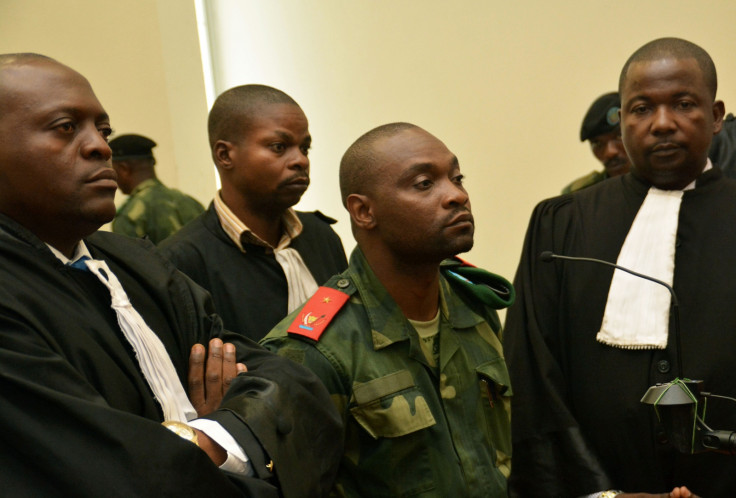Rights group urges ICC to open probe into crimes allegedly linked to DRC President Kabila
APRODEC chairman speaks to IBTImes UK about new complaint filed at the ICC against Kabila.

A Congolese organisation which last week filed a new complaint against the Democratic Republic of Congo (DRC)'s President Joseph Kabila at the International Criminal Court (ICC) is urging ICC Prosecutor to step up the examination of the case.
L' Association pour la promotion de la Démocratie et de Développement de la République Démocratique du Congo (The Association for the promotion of Democracy and Development in the DRC, APRODEC), run by members of the Congolese diaspora, filed a complaint on 19 August 2012 covering all alleged crimes committed on Congolese territory against Kabila, as head of security forces and pro-governmental militias.
Other Congolese organisations filed complaints and on Friday (10 March), the International Coalition of NGOs for the ICC – of which the APRODEC has been a member for a decade - annexed these new complaints to the 2012 and 7 May 2015 ones, effectively renewing the initial complaint. The ICC acknowledged the receipt of complaints and supporting documentation.
Rather than requesting the ICC looked into new crimes allegedly committed by security forces instance in the Kasaï region, the new complaint refers to Kabila's alleged role as 'moral author' in crimes committed in the Ituri Province in the 2000s. These include attacks allegedly committed in Bogoro, Mongwalu, Mondro and Komanda by militias and security forces.
These crimes were part of a conflict that became one of the deadliest within the larger 1998-2003 Second Congo War, which it is estimated have cost nearly three million lives.

APRODEC: President Kabila 'linked' to Ituri crimes
Former Patriotic Resistance Forces in Ituri (FRPI) militia leader Germain Katanga was sentenced to 12 years in jail by the ICC in 2014 for these crimes, while another suspect, Mathieu Gujolo, was acquitted. The men were accused of war crimes and crimes against humanity allegedly perpetrated during an attack on the village of Bogoro in eastern DRC in 2003.
The ICC trial against Katanga uncovered evidence similar to Human Rights Watch findings about the role of high-ranking military and political officials in the DRC in providing strategic direction, and financial and military support to the FRPI and other militias during the Ituri conflict in 2002 and 2003.
Gujolo's defence claimed Kabila had planned the Bogoro attack because the head of state wanted to regain control over Ituri. According to APRODEC's chairman Benjamin Stanis Kalombo, Kabila had control over these alleged co-perpetrators who allegedly followed his orders to commit the 2003 crimes.
"There was evidence that the FRPI movement was receiving arms and munition from President Kabila's office. But the court judgement does not mention Mr Kabila's name, only that those responsible are in Kinshasa. The name of the President is not mentioned for political reasons obviously," Kalombo told IBTimes UK in an exclusive interview.
At least one of the three ICC witnesses testified about President Joseph Kabila's role in backing rebel forces at the time of the Ituri conflict.
Kalombo explained the evidence brought to Bensouda in the Katanga/Gujolo case included briefing notes from the Presidential office in which the Deputy Chief of Staff wrote to generals of the armed forces saying the President's office was committing to provide ammunition and salaries to the armed forces.
"These letters leave no doubt about Mr Kabila's responsibility because they had created, within his own office, a structure called Etat Major Opérationnel Intégré (Integrated Operational Head Command, EMOI). This para-military structure controlled everything that was happening in Ituri. This is extremely serious."
Kalombo added: "For the ICC, this is interesting because it means this case does not require another investigation to be carried out because it is a logical follow-up of the Gujolo case. We are all asking for the court to officially issue an arrest warrant against Mr Kabila for these crimes."
The Congolese government has denied having any links to the militia and rejected the accusations.

ICC Prosecutor 'taking too long' to investigate
In 2015, APRODEC wrote to ICC Prosecutor Fatou Bensouda to call in Gujolo as a witness of the and his protection, after he was cleared. Bensouda refused to act on the request.
Kalombo alleged representatives of the NGOs who filed the complaints have received threats. "We have received threats over the phone from people we know who are close to the regime, and bribery propositions in exchange for the withdrawal of the complaint – as if we could withdrawal a complaint from the ICC which now sits with the Prosecutor."
Highlighting the "large elements of proof" put forward to the ICC, Kalombo said he fails to understand why "the Prosecutor was taking so long to look into Mr Kabila's responsibility in these Ituri crimes".
"We will not stop there and will put pressure on the Prosecutor, because of the need for justice and for the victims. The longer we take, the larger the number of victims, and the credibility of the ICC could be eroded."
The ICC representative in Kinshasa told Direct.cd, a Congolese news publication, that the ICC was studying the new complaint before studying the possibility of launching an investigation, or not. "President Joseph Kabila is not yet prosecuted by the International Criminal Court," Patrick Tshibuyi, Outreach Assistant of the ICC, said.
The DRC ratified the Rome Statute, the founding instrument of the ICC, on 11 April 2002.
© Copyright IBTimes 2025. All rights reserved.






















